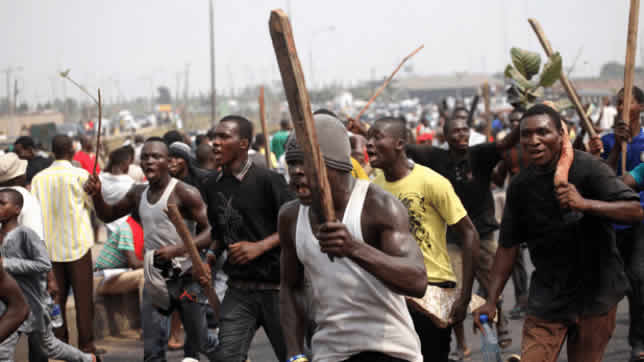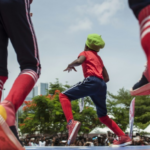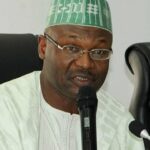
HOPES that the violence that characterises politics in Nigeria has been consigned to the dustbin have been dashed. In the ongoing contests by politicians for party nominations, bloody attacks, including at least six deaths, have been recorded. The violence is still raging in many states as the major parties round off their primaries to elect their candidates for the 2023 polls. This is a severe setback for Nigeria’s fragile democratic journey that began 23 years ago.
Ordinarily, democracy is supposed to be a civil undertaking. But in Nigeria, that is a pipe dream, and violence has become an integral part of our elections. This starts right from the primaries, which are internal party affairs to elect candidates. The violence escalates during the main elections.
So far, Lagos has the worst record. At the Ikotun-Igando Local Council Development Area secretariat on May 27, the All Progressives Congress House of Representatives primaries degenerated into a bloody combat. In an online video that went viral, thugs fought physically and exchanged gunshots. No fewer than four persons died. This is a perversion of democracy. The bitter part is that the candidates that emerge from such deadly missions will go on to enjoy the spoils of public office if they win at the main polls.
Another death was recorded during the Peoples Democratic Party House of Representatives and House of Assembly primaries in the Ogbia Local Government Area of Bayelsa State after a man nicknamed ‘Tompolo’ was shot to death. One person was slaughtered in Calabar, the Cross River State capital, during the APC House of Reps primaries.
A day after the Lagos mayhem, thugs sacked the Anambra East LGA secretariat in Otuocha, venue of the Anambra North Senatorial District primary election of the All Progressives Grand Alliance. The insurrectionists forced a postponement, as party officials and monitors scampered in all directions. Helpless APGA officials blamed the violence on two of the contestants.
Guns also boomed at Ile-Ife, a city in Osun State with a history of political bloodshed, and in Asa LGA, Kwara State, venue of an APC HoA primary election, last week. In Oyo State, the PDP primaries for the Ibadan South-East HoA was marred by violence when two leading party officials reportedly invaded the Alake Academy venue of the exercise with soldiers, who chased away some of the participants.
Violence also erupted in the Idanre/Ifelodun and Akure South/Akure North federal constituencies in Ondo State. Wild disruptions to polling were recorded in the Chanchaga, Niger, Ekiti, Nasarawa and Taraba states party primaries. In Imo State, Betty Akeredolu, the wife of the governor of Ondo State, was forced out of the APC senatorial primaries by the threat of violence. Delta and Ogun states had their own fair share of violence as well.
Over time, the politicians have turned many youths to thugs, all in the quest to achieve their primordial ambitions. They hire them for a pittance and arm them to perpetrate rigging, ballot box-snatching and violent intimidation of opponents and voters before, during and post-elections. With youth unemployment at 63.5 per cent – 42.5 per cent unemployment and 21 per cent underemployment – a new set of youths emerges in every election cycle to do the nefarious bidding of the desperate political class.
Absurdly, violence does not abate during the elections proper despite the deployment of military troops, police and other security agents. This suggests a deep-seated malaise. It needs a shock to right this bent system. In the 2011 post-election violence, 800 Nigerians were killed in the North.
Outraged, a Nobel laureate, Wole Soyinka, once described the former ruling PDP as a “nest of killers” after senior figures in the party like Harry Marshal and Harry Dikibo were violently murdered. Unresolved political killings in the Fourth Republic include that of the then incumbent Minister of Justice and Attorney-General of the Federation, Bola Ige, who was gunned down in his Ibadan home in December 2001. The republic has also witnessed the gruesome murders of Funsho Williams in Lagos, and Ayo Daramola in Ekiti.
The violence imposes a heavy burden on the system. First, it excludes decent people, the physically-challenged and even women, from participating in politics. In this atmosphere, it is difficult for the right candidates to emerge from party primaries. Governance is the ultimate loser. This sustains mediocrities in public office. Second, it precludes voters. Many of them boycott the polls because of the fear of violence, and intimidation by the security forces. Voter turnout averaging 30-35 per cent in Nigeria is one the lowest on the world. So much is spent to provide security that however remains elusive.
In other democracies, elections are devoid of rancour and bloodletting. Images from the May 29 presidential ballot in Colombia depict a picture of calm and peace. Elections have also been conducted in Australia, where Anthony Albanese of the Labour Party ousted the incumbent, Scott Morrison, a Liberal. In April, Emmanuel Macron was re-elected president of France after defeating Marine Le Pen. All this was without bloodshed. That is the ideal Nigeria must aspire to, not the siege of fear, destruction and violence associated with its elections.
Nigeria must change its way or democracy is imperilled. Violence of any kind and killings are crimes; these should be accorded severe punishment. Additionally, the submission of the Muhammadu Uwais panel on electoral reform, which recommended a Special Offences Commission to prosecute lawbreakers, should be implemented without delay. Politicians linked to violence should not enjoy the fruits of their violence.
For Nigerian youths, they should refrain from being cannon fodder for politicians. Their paymasters train their own children abroad and sponsor them for juicy appointments and political offices. Cynically, they hire and arm other people’s children as thugs and killers.
The Independent National Electoral Commission should collaborate with the National Assembly and civil society organisations to deepen internal democracy in the political parties.
Ultimately, the obscene reward system in public office favours charlatans. For democracy to deliver dividends, this has to be corrected at all levels.
All rights reserved. This material, and other digital content on this website, may not be reproduced, published, broadcast, rewritten or redistributed in whole or in part without prior express written permission from PUNCH.
Contact: [email protected]
Copyright PUNCH.
All rights reserved. This material, and other digital content on this website, may not be reproduced, published, broadcast, rewritten or redistributed in whole or in part without prior express written permission from PUNCH.
Contact: [email protected]





